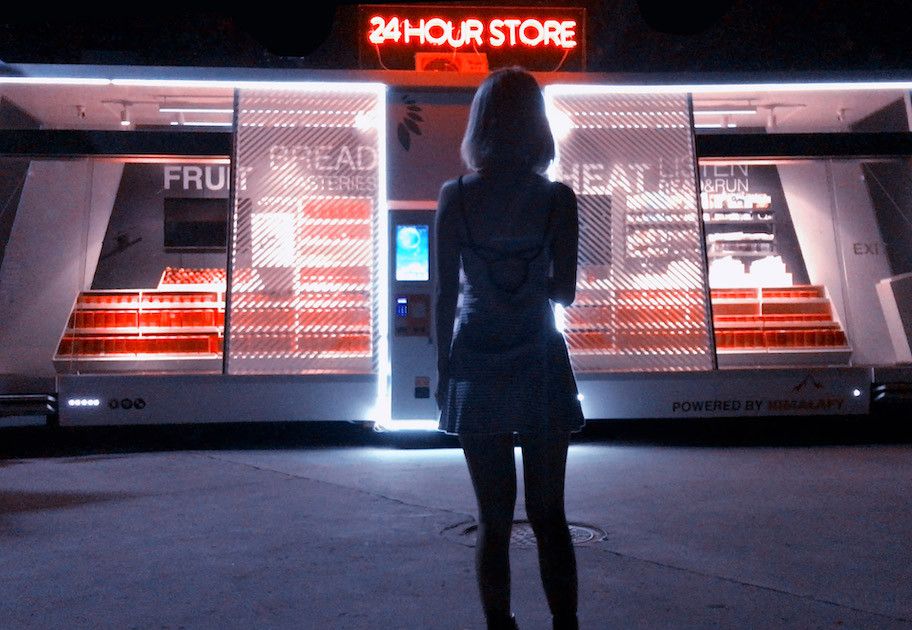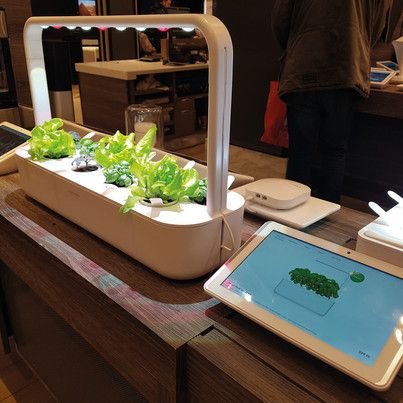Retail reality
Various concepts have been introduced but is this paradoxical trend a step forward for new retail?
The unmanned store as a solution for service and cost savings could not be any more paradoxical. One of the most important spearheads for service is the personnel ready to answer customers' questions, to show them the way, to open an extra cash till or to fetch products for the customer. Yet the existing personnel cannot meet all service requirements, and an unmanned store may offer the solution in some cases.
An unmanned store can be kept open 24 hours per day and 7 days a week without having to pay an irregular hours allowance, and it considerably speeds up the shopping and payment processes. No wonder we have seen the arrival of automatic pay points in supermarkets in recent years, which have considerably reduced the queue size. Although they are a smaller form, they too are a type of unmanned store. And customers have welcomed them with open arms, so much so that the queues are sometimes longer at automatic pay points than at the manned tills.


The risks are of course evident even when the technology is in order. The chance of shoplifting and vandalism is considerably increased, as is the possibility of people lingering longer in the store than is necessary. Solutions will need to be found to prevent these forms of abuse. And they certainly are available.
Perhaps the best-known example of an unmanned store is that of Amazon Go. Amazon has opened a number of pilot stores that work with cameras scanning exactly what disappears into your shopping basket, in order that all 'purchases' are paid for. The system works fully automatically as you leave the store, and the amount payable for the shopping you take outside is immediately charged to your credit card. It is however important that you check yourself in using your Amazon Go app before entering the store, so that the store technology knows who you are.
Although this is probably the best-known example of the unmanned store, it is certainly not the most successful example. Amazon has conducted lengthy testing of the store concept that was opened to Amazon personnel in Seattle early in 2017. A further 10 stores were opened in San Francisco and Chicago over the course of 2018. Last May, Amazon opened its first branch in New York. The concept has been modified however, as the original concept received considerable criticism concerning the cashless payment. The New York store therefore offers the option of paying cash, resulting in it not being a fully unmanned store. The personnel provides you with a mobile payment machine to round off your purchase and show you out.
Amazon themselves plan to have opened around 3,000 branches by 2021, and there are rumours that they are looking at a location in London.
Where Amazon is cautiously taking baby steps to conquer retail, retailers in China are doing so with leaps and bounds. During our latest visit to Shanghai, we observed the introduction of 'Auchan Minute Stores', a cooperation between supermarket giant Auchan and Tencent. On the car park of one of their hypermarkets, a converted sea container has been designed as a small store in which the most commonly sold items are available. Crisps, drinks and noodles. Ideal if you're peckish during the evening/night and your supermarket is closed. Entrance is simple, you login using your Alipay QR code so that the store knows who is inside, you collect and scan the articles you require, pay via your smartphone and head back out. The articles you have scanned are recognised by the detection gates, enabling you to simply walk out. Failure to pay will result in an alarm being sounded. No store staff are required therefore, until the shelves need to be restocked. The store itself gives a notification when stocks are running low, after which a shelf filler can restock it.
Whereas Amazon Go has opened 12 branches, Auchan Minute has 750 so far. Competitor BingoBox also has 500 stores by now, using the same model and concept (in fact, they assisted Auchan in developing the Minute Stores, before splitting on not the best of terms). However, BingoBox has deployed technology that can be used by anyone paying them for a licence. There is enormous growth potential therefore, certainly also for smaller retail chains (in large cities) looking to reduce personnel costs.
A further experiment is TMall in shopping centres, via BIU. These unmanned stores are focused on sport and fashion. This is a very expensive form however, and the stores we visited were all either closed or 'out of order', making life difficult.
Possibly the most interesting and also most futuristic concept heading our way is Wheelys Moby Mart. Wheely uses more or less the same technology as Auchan Minute but combines it with autonomous driving technology. It is therefore actually an autonomously driving supermarket that you can call to your door via your app.
You then only need to step on board, do your shopping and check out again. Wheely can be called to you any time of the day or night and at any location. The technology is currently being tested in Shanghai. The autonomously driving part of Wheely is as yet problematic, though this is due to the same problems currently troubling any autonomously driving vehicle. Improved recognition technology and future legislation will certainly provide a solution to these problems, though it is doubtful whether this will be in time for Wheely.
The idea of autonomously driving stores coming to you, whenever you want, is not as crazy as it might sound. It would allow a very interesting mix, especially if the technology of the unmanned stores continues to develop at such a pace. It is as yet too early for innovative retailers to jump on this particular bandwagon, but we will continue to monitor it.
The unmanned store, on the other hand, may soon really take off. The technology is certainly advanced enough and it is ideally suited to our 24/7 society, without the store personnel becoming a limiting factor. Virtual assistants and remote assistance can provide the same service experience we are now increasingly encountering in online stores. The pros and cons will need to be determined per branch, but this is certainly a next step in fast service for the food branch.
Do you want to know more about this trend? Then you should contact Dirk van Eunen, dirk.vaneunen@kega.nl or +31 (0)252 750275.
More related items
More news
Kega
14-07-2016
The web of retail interfaces · Kega
07-09-2018
